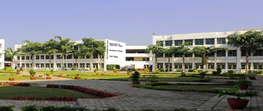Tomeshvar Kumar Dhivar is an Assistant Professor at Columbia Institute of Engineering and Technology in Raipur. He has five years of experience in academia, teaching in his field of expertise. He holds a B.E. in Electrical Engineering from BIT Durg and an M.Tech. in Power System Control from Shri Rawatpura University, Raipur. Mr. Dhiver has published two international and two national papers in journals and has attended various FDP programmes conducted by IITs and NITs.

Being a faculty of the EEE department, what are your role and responsibilities towards the students?
As an assistant professor in the EEE department, we aim to provide world-class technical education to the students of Columbia Institute. We ensure that all students understand the concepts. The teachers make sure to include modern examples to make it easier for the students. I care that each and every student should satisfy my lecture, and I also try to provide the best notes or study material to cover the course content. It is also my duty to provide extra information related to the subject that will supplement the student’s knowledge.
How do you tend to establish healthy relation with the students and fellow faculty?
I prefer a more practical learning method to rote learning. I also believe in building positive relationships and being open to feedback. I make sure to encourage collaboration, use modern teaching methods, and encourage my students to learn and be aware of current trends. I believe that by allowing students to be openly expressive, we can encourage learning. We also make use of new teaching techniques that promote class discussion and peer interactions and develop an interest in students.
How do you try to bring in practical approach towards subject and make it industry oriented?
I encourage students to do practicals individually on a one-on-one basis after learning the practicals from me. We visit different companies and industries from time to time as per the requirements of the students and the curriculum. It makes the students more industry oriented. During the classes, I give different types of tasks related to the subject to the students like project work, laboratory repair work, etc. After the session is completed, we send students to industries for vocational training.
How do you help your students to cope up with competition being so high in the outside world?
To help our students face the intense competition in the industry, we organize an employability skill programme from time to time at our college. The programme covers the essential technical and interpersonal skills that employers seek in their employees. After each session, we organize the college-level competition exams and also provide group discussion opportunities for all students.
When you come to the college, what was your vision and how are you trying to achieve the same?
When I first came to the college, I thought about how to provide new technical knowledge to students. I wanted to make my students more efficient. My vision now is to give world-level technical knowledge to the students. To achieve my vision, I try to give my best in class knowledge. To be able to do that, I read different types of articles and journals related to my subject daily to keep myself up to date in the field.
What are the benefits and career option after pursuing this course?
There are immense possibilities of opportunity in the field of electrical and electronic engineering. It is impossible to imagine life without electricity and electronic gadgets nowadays. If we look at the field of research, we are completely unaware of the possibilities and uses of electricity. As such, many career options arise in EEE. If we talk about the scope of the field, there are jobs in the government sector and in PSUs, Maharatnas, Navratnas company etc.
What valuable advice would you like to the students for them to have a prosperous career ahead?
I would like to convey to the students that they should first decide their goal/target for life and then direct all efforts to achieve that goal. Without any goal, life is meaningless, and without continued efforts, we cannot achieve any type of target. When you maintain continuity to achieve your goal without any fatigue or disturbance you will be able to achieve it. Many difficulties and problems occur in your way, you must ensure to maintain your focus.

![Columbia Institute of Engineering and Technology - [CIET]](https://image-static.collegedunia.com/public/college_data/images/logos/1496316234cgilogo.jpg?h=71.7&w=71.7&mode=stretch)


.png?h=132&w=263&mode=stretch)





![National Institute of Technology - [NIT]](https://image-static.collegedunia.com/public/college_data/images/appImage/1496645029723561nationalinstituteoftechnologynitraipurraipurindia.jpg?h=111.44&w=263&mode=stretch)

![International Institute of Information Technology - [IIIT] Naya Raipur](https://image-static.collegedunia.com/public/college_data/images/appImage/1498131055cvr.png?h=111.44&w=263&mode=stretch)

![Government Engineering College - [GEC]](https://image-static.collegedunia.com/public/college_data/images/appImage/1496466693geccover.jpg?h=111.44&w=263&mode=stretch)












![Columbia College of Pharmacy - [CCP]](https://image-static.collegedunia.com/public/college_data/images/logos/1496308691collogo.jpg?h=72&w=72&mode=stretch)



.png?h=72&w=72&mode=stretch)


.png?h=72&w=72&mode=stretch)
.png?h=72&w=72&mode=stretch)
.png?h=72&w=72&mode=stretch)


![Bhilai Institute of Technology - [BITR]](https://image-static.collegedunia.com/public/college_data/images/logos/14964024471418122817LOGO.png?h=72&w=72&mode=stretch)
![Chhatrapati Shivaji Institute of Technology - [CSIT]](https://image-static.collegedunia.com/public/college_data/images/logos/1496321197logo.jpeg?h=72&w=72&mode=stretch)

![RSR Rungta College of Engineering and Technology - [RSRRCET]](https://image-static.collegedunia.com/public/college_data/images/logos/1687775453SRGILogo.jpg?h=72&w=72&mode=stretch)
![Shri Rawatpura Sarkar University - [SRU]](https://image-static.collegedunia.com/public/college_data/images/logos/1557378316logo.png?h=72&w=72&mode=stretch)

![Chhattisgarh Engineering College - [CEC]](https://image-static.collegedunia.com/public/college_data/images/logos/1394608423Chhattisgarh Engineering College (CEC).JPG?h=72&w=72&mode=stretch)

![Kruti Institute of Technology and Engineering - [KITE]](https://image-static.collegedunia.com/public/college_data/images/logos/1496400940logo.png?h=72&w=72&mode=stretch)
![M M College of Technology - [MMCT]](https://image-static.collegedunia.com/public/college_data/images/logos/1653397317Screenshot20220524183135.png?h=72&w=72&mode=stretch)
![Government Engineering College - [GEC]](https://image-static.collegedunia.com/public/college_data/images/logos/1496466693geclogo.jpg?h=72&w=72&mode=stretch)
![Central Institute of Plastics Engineering & Technology - [CIPET]](https://image-static.collegedunia.com/public/college_data/images/logos/1547787560cipetlogo1.jpg?h=72&w=72&mode=stretch)
![VishwaVidyalaya Engineering College - [VEC]](https://image-static.collegedunia.com/public/college_data/images/logos/1496827421vec.jpg?h=72&w=72&mode=stretch)
![Institute of Technology - [IT]](https://image-static.collegedunia.com/public/college_data/images/logos/1496380415itlogo.png?h=72&w=72&mode=stretch)
![Central College of Engineering and Management - [CCEM]](https://image-static.collegedunia.com/public/college_data/images/logos/1496228786centrallogo.jpg?h=72&w=72&mode=stretch)

Comments